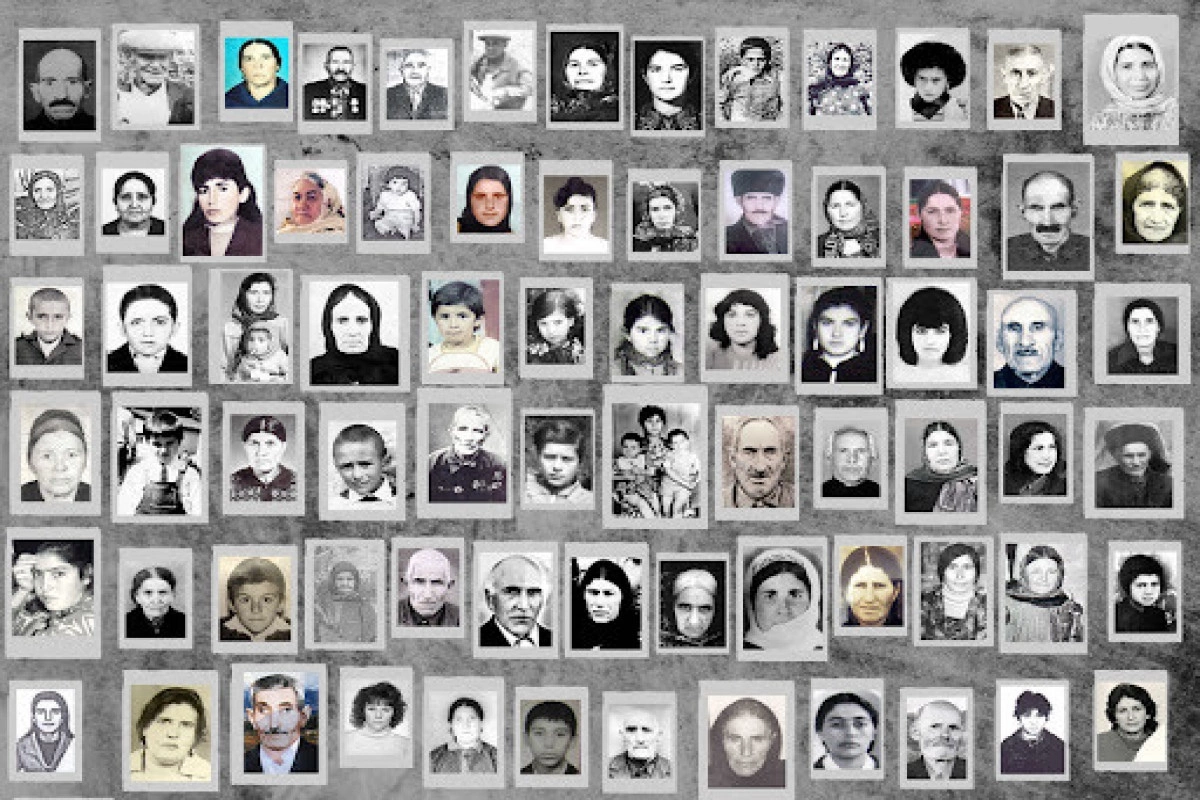
Discoveries of more mass graves in Karabakh reinforce memories of tragedy, with nearly 4000 Azerbaijanis still missing from the war with Armenia in the 1990s. Baku demands more cooperation from Yerevan in seeking closure for affected families.
Image: apa.az
As Azerbaijan continues the rapid reconstruction of Karabakh following 30 years of destruction and Armenian occupation, many ghoulish sites have come to light. At the latest in Sırxavənd village (Aghdara District), six suspected graves have been excavated, including one where around appear to have been buried en masse. Though all flesh has decomposed, bullet or blade marks on the bones, along with partially preserved shoes, make it virtually certain that these are the hurriedly buried remains of Azerbaijani soldiers who died in the First Karabakh War.
A visit to the Sırxavənd site last week was the focus of an

It is perhaps understandable (if highly regrettable) that fallen soldiers in a war situation would have been buried without proper ceremony and left half-forgotten given the situation of unresolved conflict followed by three decades of occupation. More unforgiveable, however, is the continued missing status of some 872 Azerbaijanis—both civilians and soldiers—who were taken captive by Armenian forces during the 1990s with the strong possibility that some were tortured and/or executed. Those unaccounted for include 29 children, 98 women, and 112 old folks. For Azerbaijan, Armenia’s lack of help in tracing these people (or their remains) is the source of considerable anger, and the issue has been part of the motivation for Azerbaijan to take a more global posture on finding ways for “families to know the truth” in conflicts of all types. Baku supports UN efforts to facilitate information exchange, assistance to victims, and identification of missing persons, as summarized in UN resolution 2474 (2019). Azerbaijan is also a member of the Global Alliance for Missing Persons set up in 2021.
Commemorating the UN’s International Day of the Victims of Enforced Disappearances on August 30th this year [1], President Ilham Aliyev reiterated his frustration over the slow progress on finding more of the missing from the First Karabakh War, saying:
“Unfortunately, Armenia grossly violates its obligations arising from international humanitarian law and does not provide Azerbaijan with information about the fate of missing persons and the exact location of mass graves.”
This, he speculated, could be because it does not want the world to discover the degree to which Armenia had committed “war crimes and atrocities.” However, Aliyev underlined that now the issue should be seen as “purely humanitarian” and that it should not be politicized. Rather, he asserted that an open approach to determining the fate of missing persons is “important in terms of the normalization of Armenian-Azerbaijani relations.”
Presidential aide Hikmet Hajiyev went further, decrying Armenia for hiding information about the locations of mass graves and for failing to accept responsibility or to “demonstrate its commitment to peace [by punishing] war criminals."
For now, the start of DNA analysis means that the 15 or so victims found at Sırxavənd should eventually be identified. However, further gruesome discoveries will doubtless come to light month after month. In the meantime, it’s hard to argue with Baku’s sense of frustration at receiving so little help in finding grave locations or details of hostage fates from Yerevan. However, until a full peace treaty is in place and an amnesty against retrospective charges of war crimes is issued, it’s also understandable that Armenians are unlikely to come forward voluntarily with potentially incriminating evidence.
[1] Known in Azerbaijan as İtkinlər günü (the Day of the Missing)
Share on social media